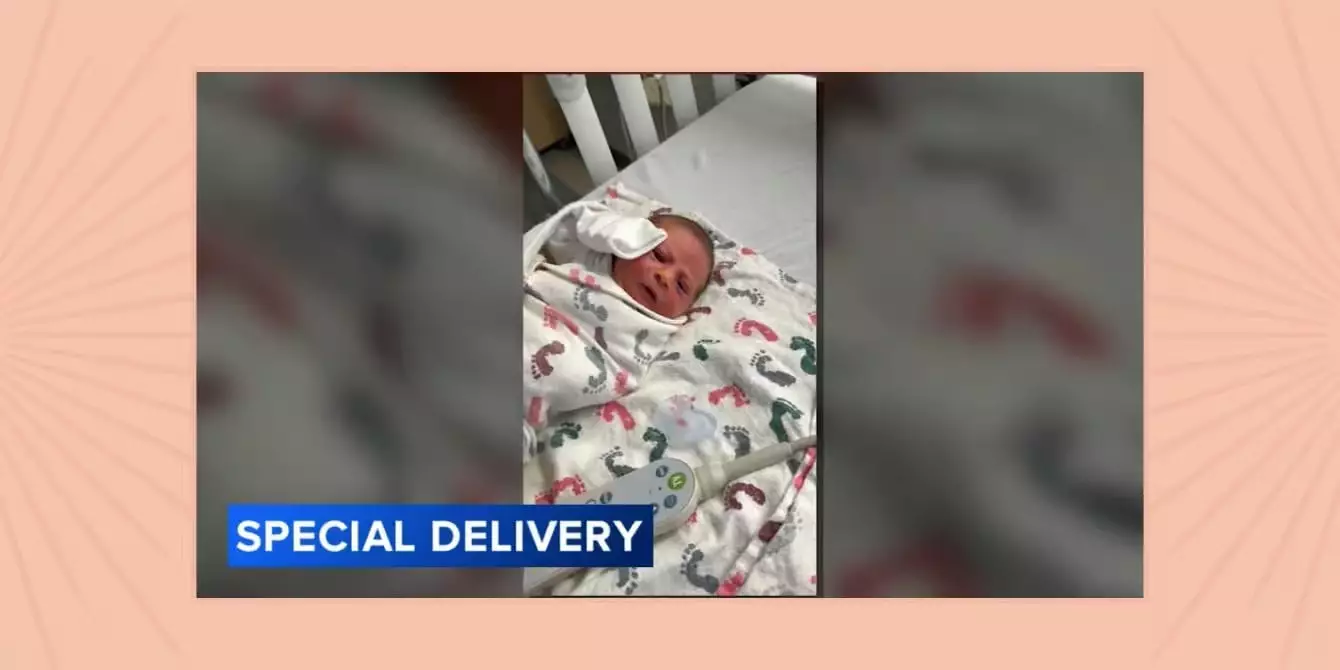Life often presents us with moments that seem to embody contradictions—joy intertwined with grief, hope shadowed by sorrow. These emotional intersections are not just fleeting feelings but fundamental aspects of human existence, revealing the resilience of the human spirit in the face of suffering. The story of Elissa Danielle West and her family epitomizes this beautifully. It demonstrates how love and loss inexorably intertwine, shaping our capacity to find meaning even in the darkest hours. Such stories serve as reminders that life’s greatest moments are often scarred with pain yet illuminated by the enduring strength of love.
Unexpected Miracles in the Midst of Tragedy
On a day filled with profound loss—the passing of her mother—Elissa found herself delivering her grandson under extraordinary circumstances. An ordinary visit to her family turned into a life-changing event when her daughter, Alysa, suddenly went into labor. With no time to reach the hospital, Elissa instinctively took command, guiding her own hands in delivering the baby she and her family would come to cherish. The rapid response from emergency services ensured both mother and child survived, but the timing of this miracle was especially poignant. Noah, born just hours after his great-grandmother’s passing, seemed less like coincidence and more like a testament to the unbreakable cycle of love and hope.
This incident underscores an uncomfortable truth: life often defies logic, offering moments of unexpected joy when least expected. It also highlights how the human capacity for resilience can transform despair into a source of inspiration and healing, especially when rooted in familial bonds.
The Emotional Paradox of Motherhood and Grief
The intertwining of grief and new life is a phenomenon well-documented by scientific research. For families experiencing loss, the arrival of a new member often redefines their emotional landscape, creating a space where sorrow and happiness coexist. Studies reveal that children born after a loss are frequently perceived as symbols of love’s resilience—cherished and understood within family narratives as uniquely significant. Their existence can serve as a healing balm, reinforcing bonds and providing a sense of continuity.
However, this emotional paradox isn’t just an abstract concept; it’s a visceral reality for countless parents and grandparents. When a loved one dies, the instinctive yearning to carry on their legacy often emerges in the form of new life, an unspoken promise that love endures beyond physical absence. The human heart, capable of harboring an intricate web of conflicting emotions, demonstrates its extraordinary resilience in these moments, transforming grief into a foundation for hope.
The Science Behind the Heart’s Contradictions
Research affirms what many families intuitively feel: that happiness and sadness are not mutually exclusive emotions. Our capacity to experience these feelings simultaneously helps us process complex emotional truths, such as mourning a loved one while celebrating new life. Psychological studies suggest that when individuals navigate through grief, they often develop a heightened appreciation for moments of joy, understanding that life’s preciousness is amplified in the face of loss.
Further, studies indicate that significant life events—such as losing a parent—can influence family planning decisions. The desire to create new life after mourning a loved one may stem from an innate instinct to preserve love’s legacy, a manifestation of hope’s persistent call. It’s as if, in seeking to bring new life into the world, families honor those they’ve lost, forging a bridge between past and future that is both deeply personal and universally human.
Love’s Enduring Presence Beyond Physical Absence
No story exemplifies love’s enduring power more poignantly than that of Elissa’s family. Though her mother is no longer physically present, her influence sustains her in countless ways—through memories, shared traditions, and now, through the life of her great-grandson. Elissa’s acknowledgment that her mother’s love is still felt, even without her physical presence, reflects an understanding that love transcends temporal boundaries. It takes new forms, adapting to the circumstances, and continues to nourish those left behind.
In our cultural narratives, love’s resilience often becomes a cornerstone of emotional healing. Whether through stories, rituals, or everyday acts of remembrance, love’s power persists, offering comfort amid pain. Noah’s arrival, occurring in what seemed like the ultimate collision of sorrow and hope, exemplifies this truth. It affirms that hope can be born anew even in the darkest moments, and love’s reach extends beyond the boundaries of death.
Transformative Power of Hope in the Face of Loss
Ultimately, stories like Elissa’s serve as powerful testimonies to the transformative capacity of hope. When faced with loss, it is easy to succumb to despair; yet, the human spirit often chooses another path—one of resilience, renewal, and love. The birth of Noah symbolizes a new chapter—a testament to the idea that even amid profound grief, life insists on moving forward.
This notion invites us to reconsider the way we perceive death and mourning. Instead of viewing loss as an ending, we can see it as a necessary passage that paves the way for rebirth and hope. It’s about recognizing that love, in its many forms, never truly dies—it simply transforms, inspiring new beginnings that honor those we’ve lost and nurture our collective resilience.
In embracing this perspective, we affirm a fundamental truth: the human capacity for love and hope is infinite, capable of enduring beyond the confines of physical existence, shaping lives and hearts in ways that continually surprise us. And perhaps, in the grand tapestry of life, it’s these moments of complex emotion—where sorrow and joy dance in tandem—that reveal our deepest strength and most profound hope.

